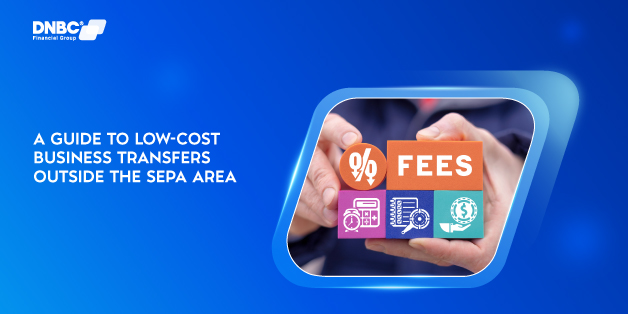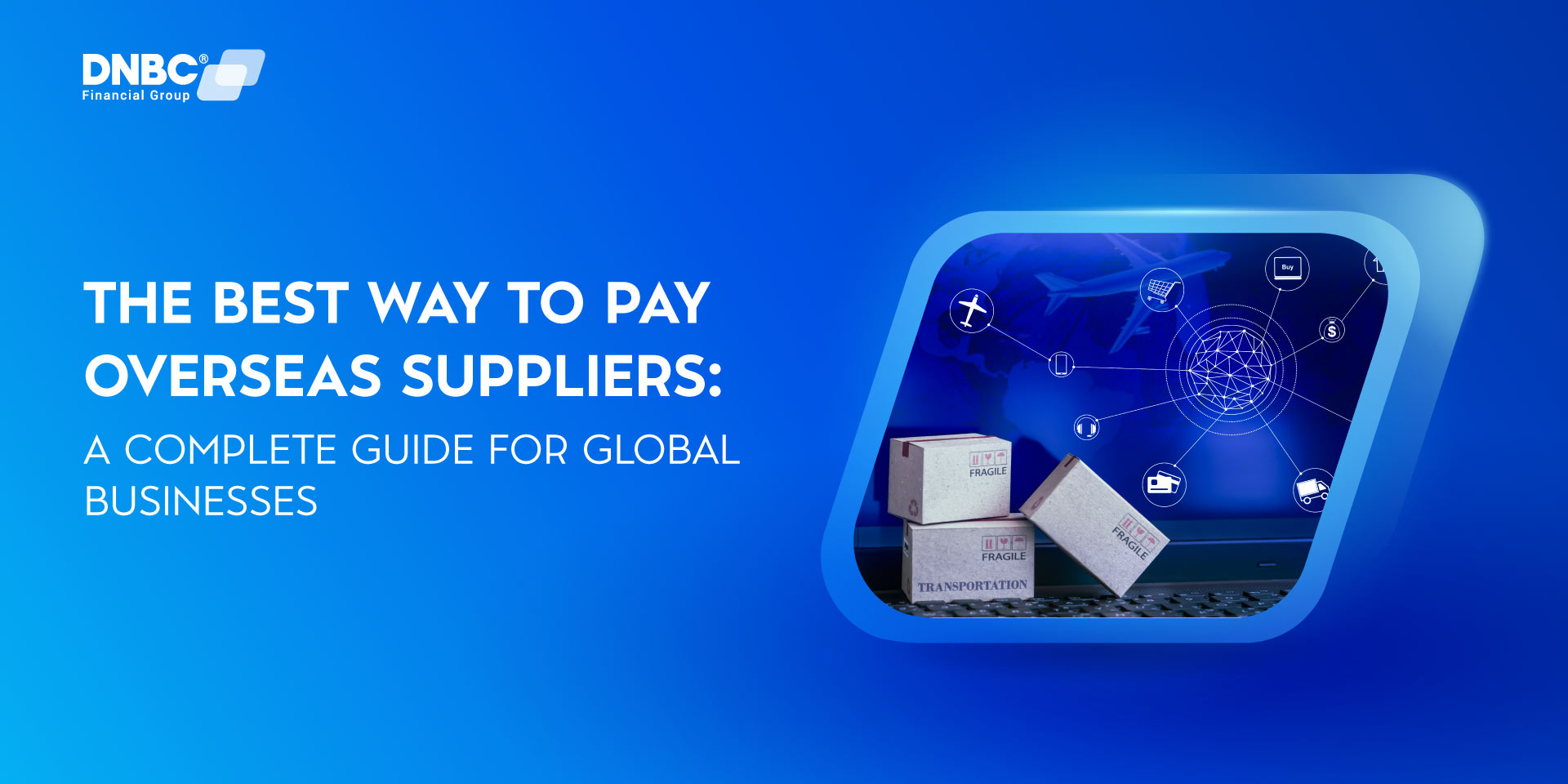- Home
- Blog
- Business Finance
- What Do You Need to Open a Business Bank Account?
What Do You Need to Open a Business Bank Account?
Business Finance
31 January 2025
DNBC Team
This article is a part of DNBCGroup Blog Center
Contact DNBCGroup for the technology news, tips, trends, and updates.
Corporate bank accounts make your company seem more professional when dealing with the IRS and clients. Below, DNBC Financial Group will explore more deeply some reasons you might desire a business bank account, the benefits, and the paperwork requirements to open a business bank account.

7 common requirements to open a business account
How many types of business bank accounts?Business checking accounts
Small business checking accounts are appropriate for companies that need to make checks, withdraw money with a debit card, and receive or transfer money instantly.
Electronic transfers, wire transfers, check deposits, and ATM deposits are all ways to deposit money into a company checking account. Checking accounts may also be integrated with general business applications and accounting software to simplify the management of reports and transactions. Positive Pay, a cash-management solution that helps avoid check fraud also offered by some institutions.
Business saving accounts
Business savings accounts are great for saving for large expenditures such as equipment, creating an emergency budget for unforeseen situations, or earning interest. Depending on your account balance, many banks often provide competitive interest rates on high-yield savings accounts with little or no monthly charge. The minimum opening deposit amount required may vary.
Merchant services accounts
You should have a company merchant account if you want to take debit and credit card payments. When a consumer pays with a credit card, the money goes immediately into your merchant account and automatically transfers to your company account. Merchant accounts have their pricing structure, so inform yourself of the charges before signing up.
Why is it crucial to have a business bank account?
1. Protect your personal funds
Your personal money might be in danger in a lawsuit if you keep your business and personal finances in the same account. That means even if the manner you acquired the money had nothing to do with your business, it could be fair game if someone sues your firm and the court grants them compensation. In these circumstances, your personal savings are safeguarded by a separate small business banking account.
2. Avoid tax issues
It is simpler to keep track of company income and expenses when there is a separate bank account for the firm. This can help you avoid issues with the IRS and spare you a lot of hassles when it comes time to submit your taxes. In addition, by keeping your personal and business money separate, you can prove to the IRS that you're operating an honest company and not just a side hustle that isn't allowed to claim business tax deductions.
3. Accept credit cards
A personal bank account cannot process debit or credit card transactions. You need a business bank account to process card payments from consumers who do so often. If not, you must only allow cash or checks as forms of payment, which may discourage certain clients from doing business with you.
4. Allow others to access business funds
When you're operating a partnership or corporation, you probably won't be the only one who has to make a business transaction or access the company's cash. You don't want your company partners utilizing your personal bank accounts. Therefore, a business bank account for an LLC or corporation is preferable.
5. Keeping an expert appearance
If you can issue vendor checks from an LLC bank account rather than a personal account, your business will become more professional. Additionally, clients might feel more secure when paying money under your company's name rather than you as an individual.
What are the 7 essential requirements to open a business bank account in the US?
The most typical conditions for establishing a business bank account include those mentioned below.
1. Employer Identification Number (EIN) or Social Security Number (SSN)
A business customer's employer identification number (EIN) is often required in order to create a business checking or savings account. Besides that, others may allow single owners to open a small company account using only their Social Security Number.
If you don't already have an EIN, you may apply on the IRS website at no cost as long as you have a valid Social Security Number and your company is based in the United States or one of its areas.
2. Personal Identification
You must have a driver's license, passport, or other kinds of state-issued identification to verify your identity, much as when you open a personal or business bank account.
3. Business formation documents
You must provide a copy of your formation documentation to your bank or financial institutions. It refers to the articles of organization for limited liability companies (LLCs) and the articles of incorporation for corporations. These documents contain some fundamental details about your firm, such as its organizational structure, the people in charge of handling the cash, and how it will run.
4. Ownership agreements
You and the other owners must make a partnership or operating agreement if you're managing a company or collaboration. The rights and obligations of each owner as well as the business's operational procedures will be described in this.
5. Business license
Before allowing you to register a business bank account, your bank will want documentation proving that your company has the necessary permits. Do some research to determine what is essential for your region, as the criteria for obtaining a business license differ based on where you live.
6. Certificate of an assumed name
A certificate of an assumed name, commonly known as a doing-business-as (DBA) name, is required if the name you use to market your firm to your consumers differs from the company's legal name. When you open your account, your bank will also want a copy.
7. Monthly credit card revenue
Provide your bank with information about your business's average monthly credit card income if you're interested in creating a merchant services account to process debit and credit card transactions. Startups might not have had any credit card sales in the past, but they still need to know roughly how much money they should expect.
Conclusion
After reading this guide, you know the requirements to open a business bank account and its importance. You should gather all the crucial documents discussed above so you're ready to apply. DNBC Financial Group looks forward to offering the outstanding international payment account. We provide comprehensive online payment services and money transfers in over 170 countries in numerous currencies available anytime you need. Explore how DNBC can help you improve your international payments here.
Your Trusted Partner
In your Digital
Journey
Free 1 - on -1 support
Free account opening fees
No hidden fees
Note: The content in this article is for general informative purposes only. You should conduct your own research or ask for specialist advice before making any financial decisions. All information in this article is current as of the date of publication, and DNBC Financial Group reserves the right to modify, add, or remove any information. We don’t provide any express or implied representations, warranties, or guarantees regarding the accuracy, completeness, or currency of the content within this publication.
Related posts

A Guide to Low-Cost Business Transfers Outside the SEPA Area
04 July 2025

How to Set Up a Business Escrow Account: A Simple Guide
20 June 2025

Cross-Border Business: Opportunities and Challenges in the Global Marketplace
23 May 2025

The Best Way to Pay Overseas Suppliers: A Complete Guide for Global Businesses
22 May 2025

Real Time Cross Border Payments: Shaping the Future of Global Financial Transactions
22 May 2025